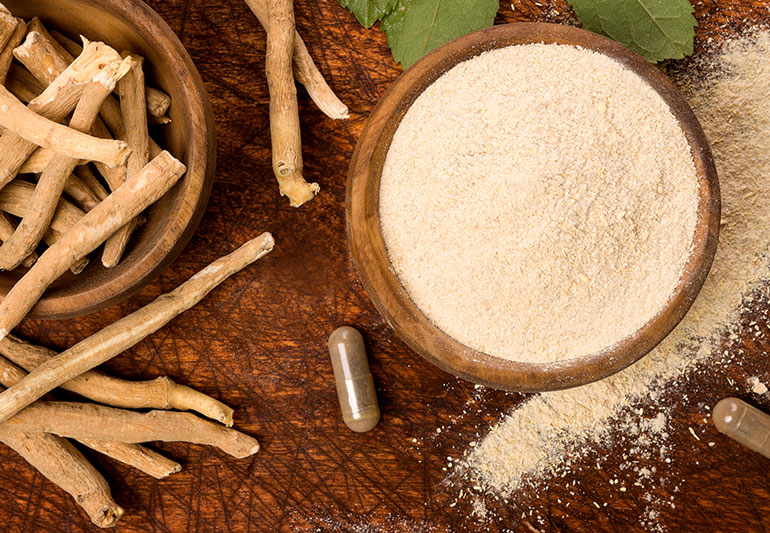Hypothyroidism, Graves disease, Hyperthyroidism, Hashimoto disease, Thyroid cancers, TSH levels, TSH blood test, Hashimoto, Thyroid gland, Parathyroid, Thyroxin, Thyroiditis, Thyroid treatment
Root Cause of Disease
When your thyroid makes either too much or too little of these important hormones, it’s called a thyroid disease. There are several different types of thyroid disease, including hyperthyroidism, hypothyroidism, thyroiditis and Hashimoto’s thyroiditis. The two major causes of thyroid disorders are nutrient deficiency and autoimmune disease. Iodine is a crucial nutrient for thyroid function. Thyroid hormone is rich in iodine, and deficiency of iodine can cause both hypothyroidism and goiter (a swelling of the thyroid gland)
Symptoms
The two main types of thyroid disease are hypothyroidism and hyperthyroidism. Both conditions can be caused by other diseases that impact the way the thyroid gland works.
Hyperthyroidism is an overactive thyroid (when it produces too much thyroid hormone). Hypothyroidism is an underactive thyroid (when it does not produce enough). Hypothyroidism is more common than hyperthyroidism. Although the two conditions have different signs and symptoms, sometimes they overlap.

Causes
Conditions that can cause hypothyroidism include:
- Thyroiditis: This condition is an inflammation (swelling) of the thyroid gland. Thyroiditis can lower the amount of hormones your thyroid produces.
- Hashimoto’s thyroiditis: A painless disease, Hashimoto’s thyroiditis is an autoimmune condition where the body’s cells attack and damage the thyroid. This is an inherited condition.
- Postpartum thyroiditis: This condition occurs in 5% to 9% of women after childbirth. It’s usually a temporary condition.
Home Remedies to treat Thyroid
Remedy – 1: Start Taking A Sugar-Free Diet

When you eat sugar or different types of processed foods that contain sugar, then these products work like a slow poison in your body. These food products can decrease the metabolism rate and energy levels in the long term. Also, sugar leads to inflammation issues in your body that slow down the conversion rate of T4 to T3 (triiodothyronine) hormones. This further causes different symptoms of thyroid disease in your body. So, it’s better to avoid sugar in your diet and boost your energy levels.
Remedy – 2: Raising Protein And Fiber-Rich Food Intake

Proteins are important supplements that facilitate the transportation of thyroid hormones to every tissue in the human body. So, when you consume these supplements in your meals, they help to normalize your thyroid function. Different types of protein sources like nuts, salmon, chicken, quinoa, legumes, pulses, etc. can be added to your meal.
Also, you must eat whole grain wheat and flaxseed that are enriched with fiber components. This fibrous food will smoothen the functioning of endocrine glands and finally help to release the required insulin (thyroid hormone) in the blood.
Remedy – 3: Focus On Herbal Remedies
Materials: Ashwagandha

Ashwagandha is the herb used in ayurvedic practices to reduce thyroid gland abnormalities, particularly in the subclinical hypothyroidism stage.
It contains a mixture of Gotukola, Shankhapushpi, and Ashwagandha herbs to nourish the thyroid hormones for its smooth functioning. The herb Gotu Kola balances the thyroid hormone levels, heals skin problems, and boosts your brain, kidney, and liver functioning. Shankhapushpi balances the enzyme group.
Remedy – 4: Consume Iodine, Selenium, B12 rich food

Selenium is a trace element that plays a part in thyroid hormone metabolism. Many foods contain selenium, including:
- Tuna
- turkey
- Brazil nuts
- Grass-fed beef
Vitamin B-12 can help with the tiredness thyroid disease can cause. The disease also affects your vitamin B-1 levels.
Remedy – 5: Probiotics
The NIH studied the link between hypothyroidism and small intestine problems. It was found that altered gastrointestinal (GI) motility commonly seen with hypothyroidism can cause small intestinal bacterial overgrowth (SIBO) and ultimately lead to chronic GI symptoms, such as diarrhea.
Probiotic supplements contain live helpful bacteria that can help keep your stomach and intestines healthy.
- Fermented food and drinks
- Kefir
- Kombucha
- Yogurt

Other Remedies
Ashwagandha
Ashwagandha has been used in Ayurvedic medicine for centuries. Research has shown that it can help balance thyroid hormones.
As a result, it is beneficial in both hypothyroidism and hyperthyroidism. Ashwagandha also reduces inflammation, thus facilitating the treatment of thyroid disorders.
One can consume ashwagandha as a supplement or use it as a spice in cooking.
Holy Basil
Tulsi, or holy basil, is an Ayurvedic herb with anti-inflammatory benefits. In addition, it can adjust the production of thyroid hormones. Hence, it is beneficial in controlling thyroid issues. One can use tulsi as an ingredient in tea or spice when cooking.
Ginger
Ginger has anti-inflammatory properties, which can help improve symptoms associated with hypothyroidism. Its consumption helps reduce levels of thyroid-stimulating hormone (TSH).
As a result, it leads to an alleviation of hypothyroid symptoms. Research also proves ginger’s efficiency in regulating thyroid hormones.
One can consume ginger in their tea or add it to food as a spice.
Preventions
- Avoid Processed Food: A lot of chemicals can alter the thyroid hormone production. One needs to avoid any kind of processed food; they are on the edge of thyroid disorder.
- Avoid Soy: Limit the soy intake as it alters the hormone production.
- Stop Smoking: The toxins released during smoking can make the thyroid gland over sensitive which can lead to thyroid disorders.
- Reduce Stress: Stress is one of the major contributors in many health disorders including thyroid disease.




